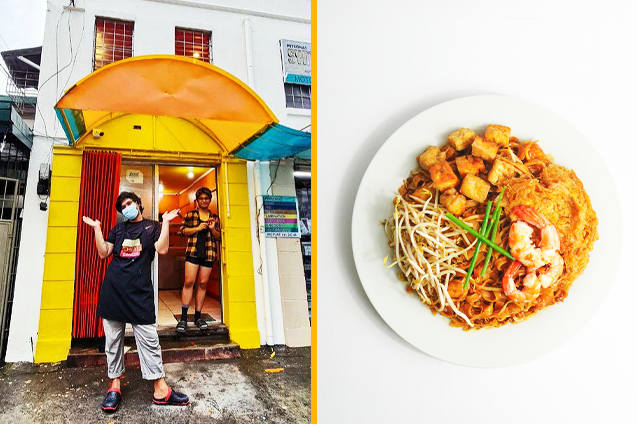On Twitter, a quick search for pad thai near you (if you are in Metro Manila) will most likely lead to Puesto. If the tweet is not a review, it is probably an expression of desire.
“Send pad thai from Puesto please,” one user posted.
“Manifesting: Manlilibre sa’kin ng Puesto pad thai at spring rolls,” another said.
“Sunday night pa lang iniisip ko na kung anong oorderin ko sa Puesto on Wednesday,” tweeted a user who also described the dish as the “best merienda ever.”
Actress Agot Isidro called it “awtenteek” (authentic) in one tweet. And if you haven’t tried Puesto yet, another user said that you’re missing out.
Miel Ochoa, Puesto’s queer owner and cook (pronouns: they/them), attributes the growth of their business to Twitter. Most of the orders they get come from Twitter. And even if the orders are made on Instagram, chances are these customers learned about Puesto through Twitter too.
“It’s a conscious choice to include everyone regardless of their belief systems, their SOGIESC, and their food choices. I want everyone to feel safe. I want everyone to be able to eat,” owner Miel Ochoa stresses.
Since its introduction in 2007, Twitter has fostered niche communities. For one, it’s a place where fans can interact with their idols and fellow fans. It’s also a fertile space for trading among fan communities. A photo card sale could rake in hundreds of replies in no time.
While Twitter has proven to be productive for merch sales, it is not the usual platform of choice for small online businesses. Twitter doesn’t have features specifically designed for selling or paid promotion. Visibility on the bird app is dependent on organic interactions. But that is also what enticed Ochoa to use Twitter as Puesto’s primary space.
It all started when Ochoa sought help from their followers at the start of the pandemic. With a job at stake because of the lockdown, Ochoa tweeted about the food they can cook and sell. The tweet gained clout (a Twitter vernacular that refers to unexpected popularity via retweets) and led to new customers. As their tweets about food obtained consistent traction, Ochoa realized the possibility of building their market on Twitter. “Instagram is already saturated, so why not make a market on Twitter?” Ochoa says.
Open for all
Ochoa, who was a preschool teacher, has always loved cooking. It was in fourth grade when they learned how to cook. Before the pandemic, Ochoa apprenticed under a chef who used to cook at a Thai restaurant for over a decade. “She taught me what I know about cooking pad thai,” Ochoa says.
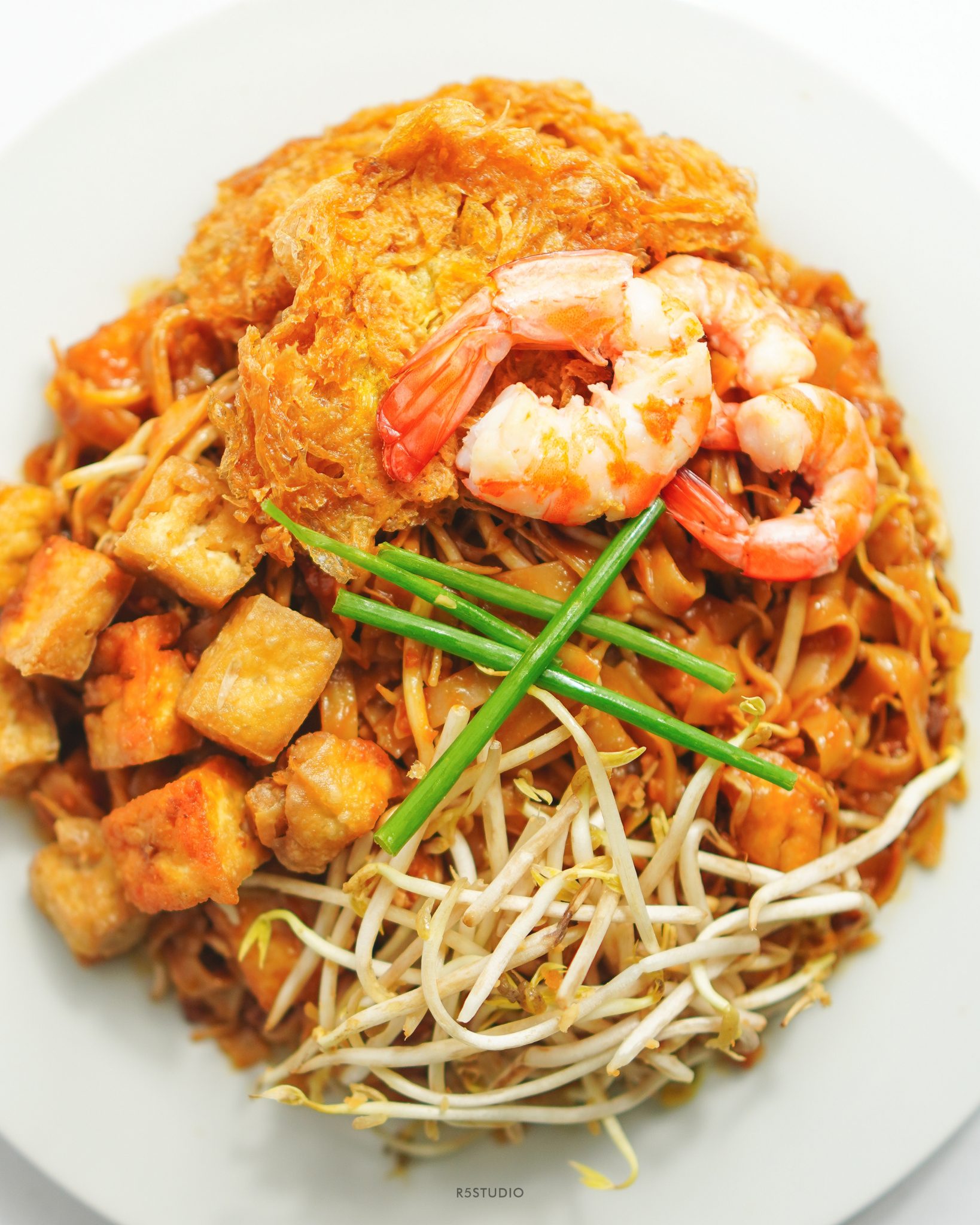
After their month-long training, Ochoa further experimented with the dish, stating that their Twitter-famous pad thai came from a “long process of trial and error.”
“I’m not good at following instructions in recipes,” Ochoa admits. “It’s mostly eyeballing. The conglomeration of flavors—salty, sweet, sour—just has to make sense. If it doesn’t make sense to me, I’m pretty sure it won’t make sense to other people. The flavor translates to something that surpasses language barriers.”
The pad thai, as the rave reviews on social media demonstrate, is the staple on Puesto’s menu. It comes in three variants: vegan, vegetarian, and pescatarian. Over the past year, Ochoa has slowly expanded the menu to include other Asian fusion dishes with an option for meat substitutes too: spring rolls, Korean chicken, satay pasta, to name a few. They have been experimenting with a spaghetti dish that’s slow-cooked for 16 hours. Although the dish sounds promising, Ochoa considers forgoing the dish.
Ochoa has a clear understanding that integrity is key in serving customers. “Ever since, I’ve been practicing radical honesty when it comes to my food. Ang binabayaran ng customer hindi lang naman ‘yung pagkain eh, ‘yung tiwala nila sa ’yo,” they note.
Going beyond their love for food, Ochoa established Puesto as a paean to their community and inclusivity.
“For queer people, we know what it feels like not to feel included. I don’t want my vegan friends to feel not included in our menu. I want them to be able to eat something. Well, not just something but something good, something filling, and something delicious,” says Ochoa.
There was also awareness to exclude pork from the menu. Puesto’s first customer was a Muslim, and Ochoa wanted them to have a comfortable seat at the table too. While Ochoa cannot claim that Puesto’s food is halal, they assure that they don’t serve anything haram.
“It’s a conscious choice to include everyone regardless of their belief systems, their SOGIESC, and their food choices. I want everyone to feel safe. I want everyone to be able to eat,” Ochoa stresses.
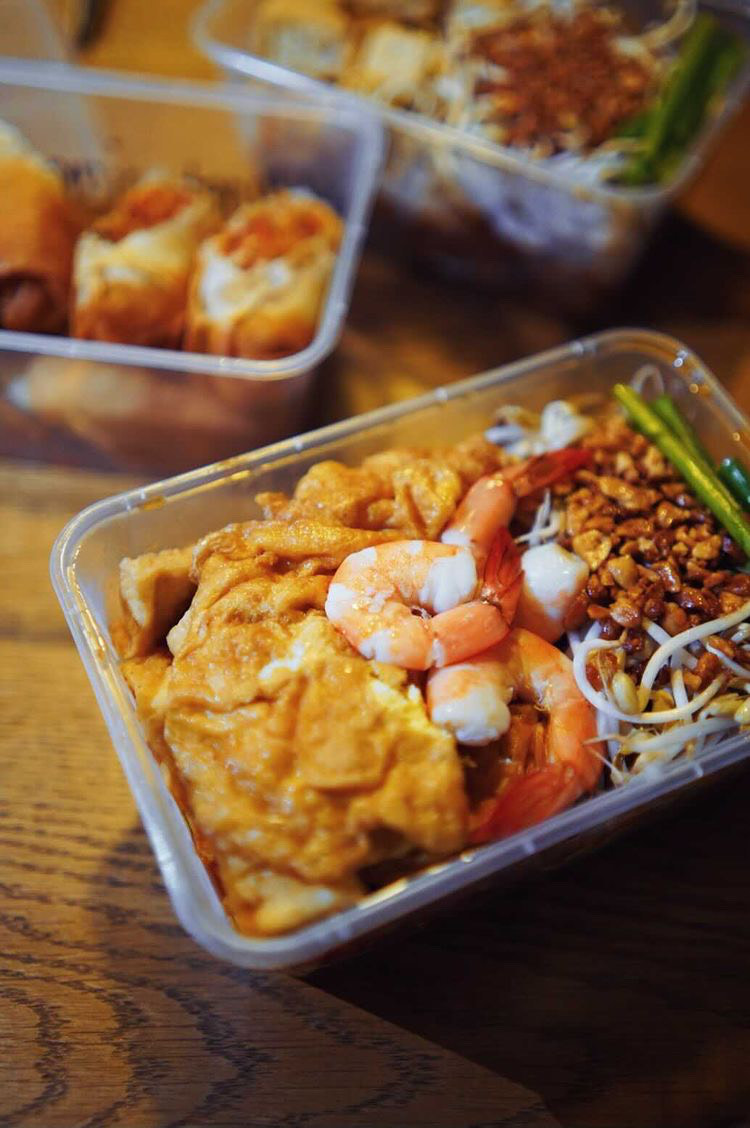
As much as its inclusive menu is its main selling point, the awareness it requires has also become one of Puesto’s hurdles. With a staff of seven (including Ochoa’s partner who helps out with logistics and, sometimes, cooking as well), Ochoa had to make sure that everyone knows what all these diet restrictions are all about.
They admit that mistakes were made at first, and that dishes had to be cooked again to make sure that the order caters to a customer’s “health or belief system.”
Ochoa has a clear understanding that integrity is key in serving customers. “Ever since, I’ve been practicing radical honesty when it comes to my food. Ang binabayaran ng customer hindi lang naman ‘yung pagkain eh, ‘yung tiwala nila sa ’yo,” they note. (The customer pays not only for the food, but also their trust in you.)
Finding a space offline
While Puesto is thriving online, Ochoa’s goal for the business has always been clear: to have their own space. In fact, this is the reason why the business is called Puesto.
“It started with wishfully thinking na sabi ko gusto ko magka-puwesto,” Ochoa says. (It started with wishfully thinking that I wanted to have a physical space.) “Because I didn’t have a physical puwesto back then, why not name my store for what I aspire to have?” they muse.
Like the inclusive menu, it was also intentional to call Puesto a carinderia instead of a restaurant. “If I make it a restaurant, it would cut off a huge market. Seventy percent of the people here in the Philippines are the masses,” they explain. “I want everyone to be able to eat here and just coexist.”
Ochoa found Puesto’s current physical space by chance during President Duterte’s last State of the Nation Address in July. They were on their way to the mobilization of progressive organizations Bahaghari PH and Metro Manila Pride. The car they were riding stopped right in front of a vacant place in Brgy. Bahay Toro in Quezon City. Although Ochoa does not believe in serendipity, they say that everything about it felt right.
Like Ochoa’s inclusive menu, it was also intentional to call Puesto a carinderia instead of a restaurant, noting that it would be “relatable” to everyone.
“If I make it a restaurant, it would cut off a huge market. Seventy percent of the people here in the Philippines are the masses,” they explain. “I want everyone to be able to eat here and just coexist.”
Of course, the ultimate goal of taking up a physical space is to provide a safe space for the LGBTQ+ community. Ochoa acknowledges that queer spaces have been limited to clubs, and wants to change this.
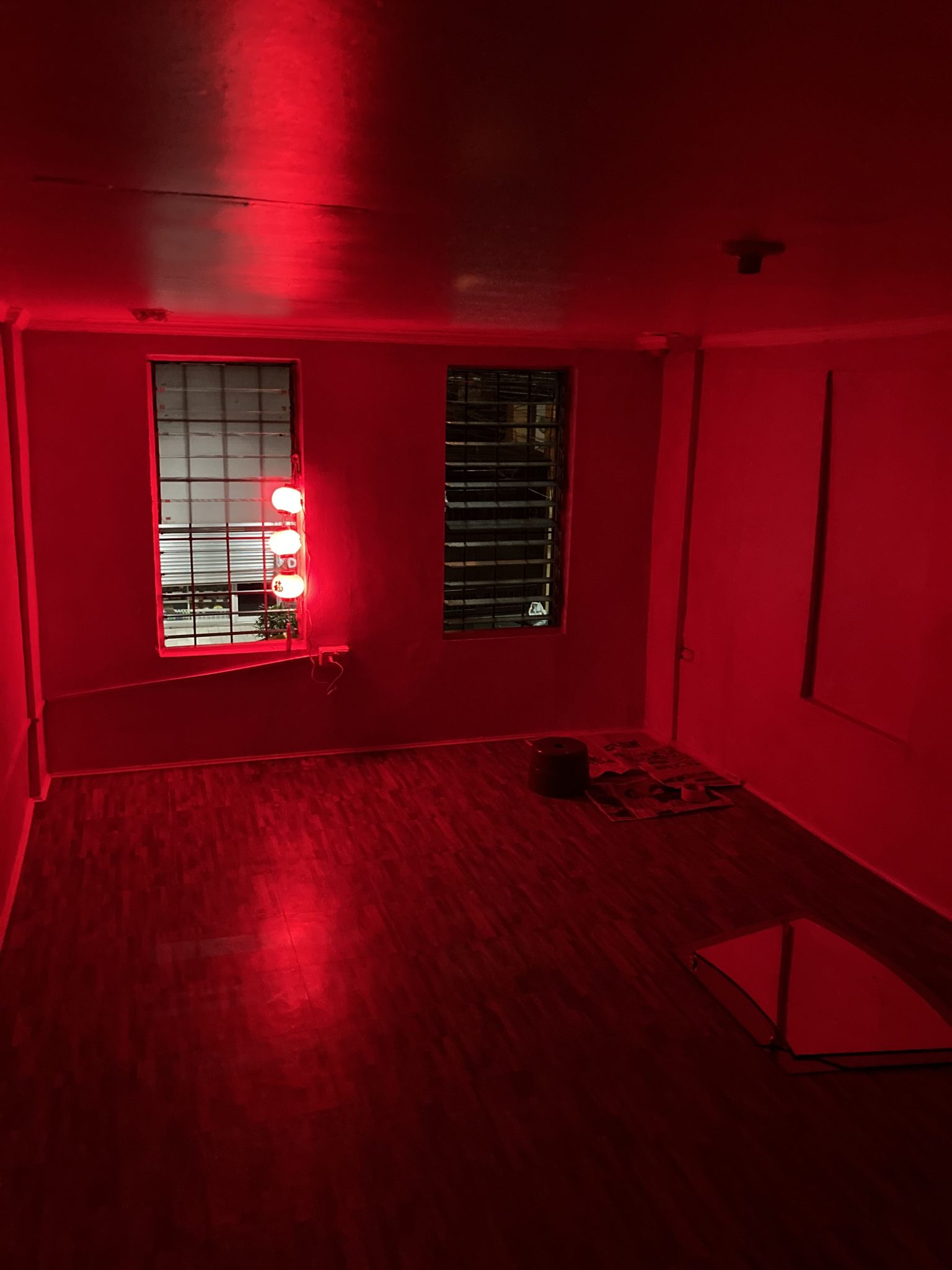
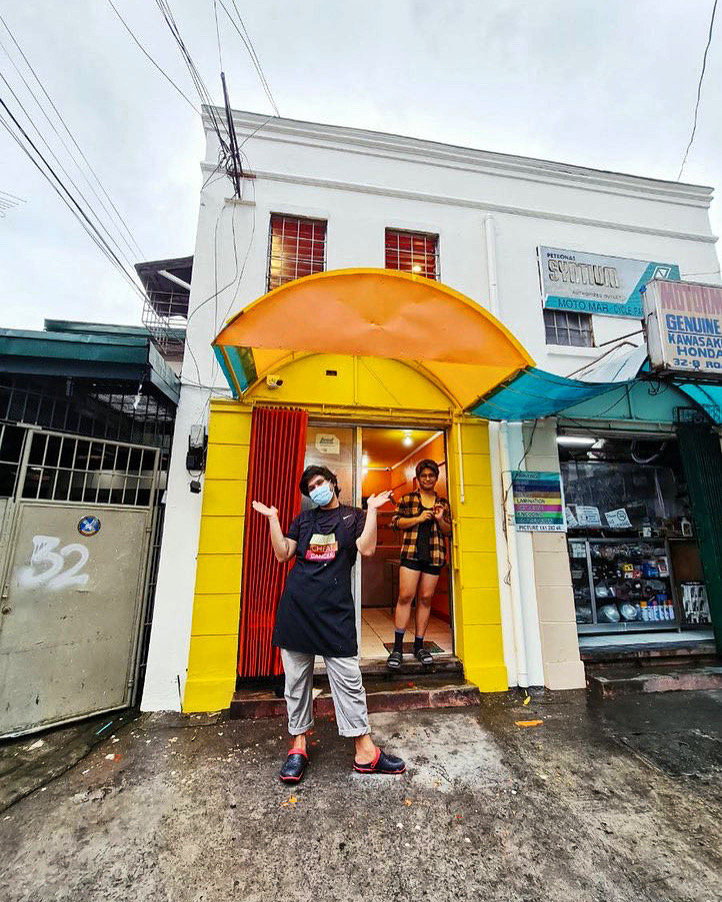
Puesto is a safe space that caters to the domesticated bading who can’t stay up late or who just wants to have merienda with friends. And at a time when the bars that we frequented could not operate or even had to close last year, there’s an even bigger need for safe spaces that can operate during this time of social distancing.
Puesto Carinderia opened its doors in late August. Back then, Metro Manila was under MECQ—food establishments were not allowed to do dine-in services. Puesto continued its operations for takeout. In those early days of occupying the carinderia, Puesto started offering lutong-bahay (home-cooked) dishes. However, Ochoa decided to focus again on the items on the menu as the additional lutong-bahay dishes require so much effort from their small staff.
Since its opening, the eating area of the carinderia functioned as a waiting area for riders and the second floor, which is meant to be a creative space, remains vacant.
But Ochoa is hopeful that “soon things will get better and we’ll be able to see each other physically and enjoy the physical space that we collectively saw to fruition.”
Giving back
Ochoa doesn’t want to call themself a self-made person. Starting from the call for help they made on Twitter last year and up until now that they have a physical space, everything happened through collective help.
What Puesto achieved in over a year is not simply a measure of success, but Ochoa thinks of it as a way of perpetuating the culture of collective help. Aside from being a safe space, Puesto is also an avenue of providing opportunities to other people.
What Puesto achieved in over a year is not simply a measure of success, but Ochoa thinks of it as a way of perpetuating the culture of collective help. Aside from being a safe space, Puesto is also an avenue of providing opportunities to other people.
Ochoa wants Puesto to attain a status akin to that of Pares Retiro. When you say Puesto, anyone—even those who haven’t tried their food yet—will have a notion of what it is. Through Puesto, Ochoa also intends to fulfill their goal of becoming a lawyer.
“The queer struggle here in the Philippines is so bad. I want to be part of the legal counsel for the orgs that supported me during the times when I was literally in deep trouble,” Ochoa says.
And perhaps, all these important conversations could start with good inclusive food. As Ochoa tells InqPop, “The more we get to talk about food, pride, and politics, the more we have [a]place for mutual understanding, [and all] the more we get to recognize that we are all humans that deserve the right to have access to not just food, but equal rights as well.”
Puesto Carinderia is located at 32A Rd 20, Brgy. Bahay Toro, Quezon City.





